How To Launch And Grow A New Niche Website
Launching a new niche website can be a fun and exciting venture. Niche content websites are responsible for a large portion of the content found in search engines across the globe and can generate large amounts of income for publishers that are able to grow and invest in launching these new sites.
Niche content websites typically focus on a particular form of subject-matter or topic. Over the last decade, millions of niche content sites have been created by publishers of all shapes and sizes. Most publishers monetize these sites using a combination of display advertising, affiliate advertising, native advertising, product sales, and sponsored content.
It has never been easier to start a niche website; however, there is more competition and more complexity involved in succeeding in these ventures than ever before. Below, I’ll highlight how to launch and grow a niche website successfully without waiting years to see hard work pay-off.
What is a niche website?
There isn’t an official definition for a niche website. Primarily, niche websites are defined as digital publications that specialize in specific topics or subjects. Some niche content sites may be more broadly focused on overarching topics, like women’s sports in the United States, while others may have tight parameters around the subject matter and type of content they produce (i.e. Commerical Hot Sauce Reviews).
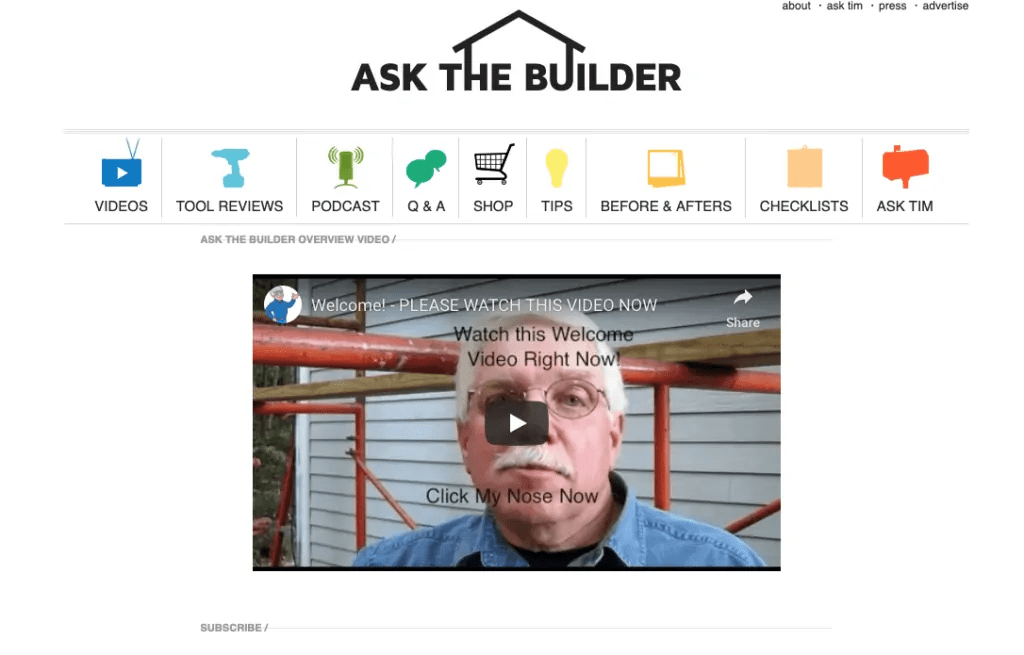
Most niche content sites earn the majority of their website income from display advertising. Often, this form of monetization is supplemented with affiliate advertising arrangements, product sales, directly sold sponsored content, and other forms of digital advertising.
A niche content website doesn’t necessarily mean that a site is “small”. Many niche sites are owned by major media conglomerates while others may be owned by part-time publishers that start the venture in their spare time.
Can you make money with niche websites?
Yes. Most niche content sites start by using display advertising that can be bought and sold by advertisers programmatically on large platforms, like Google. Google’s AdSense is one of the world’s most popular and widely used forms of website monetization by digital publishers.
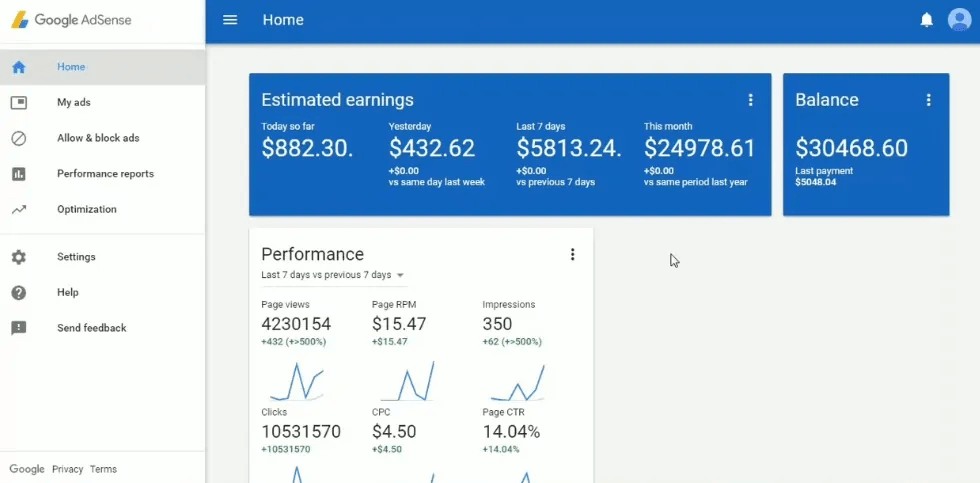
As niche sites grow, most still generate the majority of their income through display advertising; however, many will further expand how they optimize and manage ad partners and placements. Large niche content sites will often attract direct advertisers that may be interested in display advertising on the site or sponsored content.
Publishers that begin serving a lot of direct advertising on their niche content sites will likely need to leverage an ad server, like Google’s Ad Manager, to properly serve and manage directly sold deals. This can also be done using self-managed, end-to-end platforms, like Ezoic.
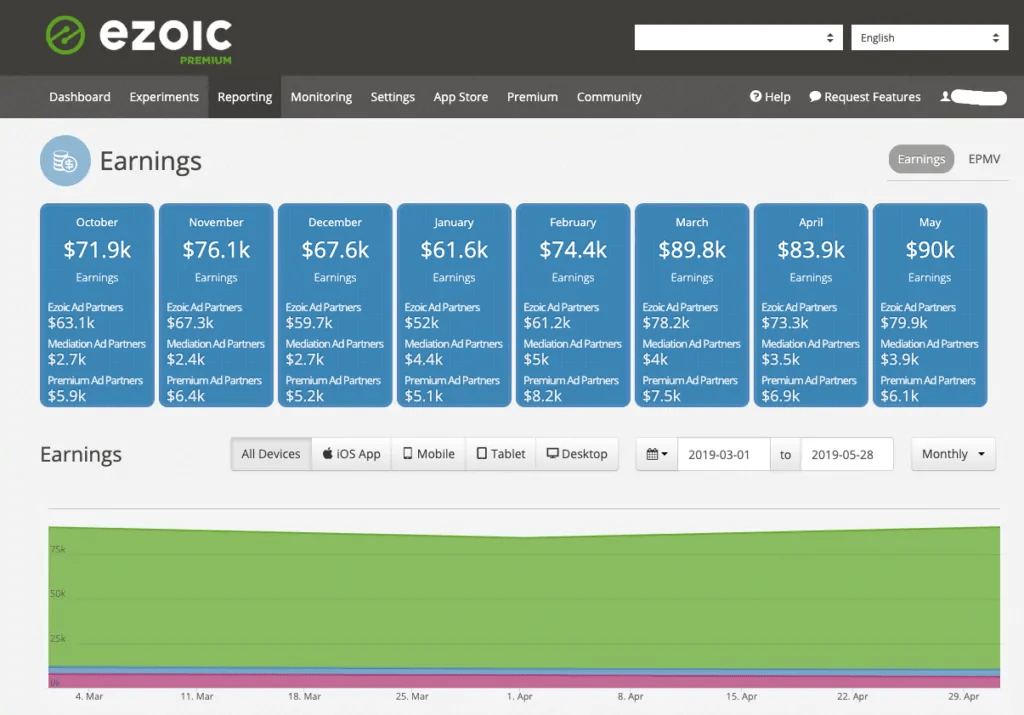
The income that can be generated from niche websites varies widely. In some cases, niche sites are created or bought by large media businesses, like Hearst Publications, that are able to generate over $30,000,000 in revenue each year.
Meanwhile, small niche sites that aren’t able to grow may never produce significant earnings.
How do you generate income from a new niche website?
Trying to generate income immediately from a brand new niche content site is typically difficult unless the site has a proven way to generate traffic. No matter what model of monetization a publisher uses, a niche site will need an audience to generate monthly revenue. Typically, audiences are attracted to a niche site for its unique content.
New sites will likely need to invest time, money, or a combination of both into creating unique, engaging content to generate an audience capable of producing meaningful revenue.
Every content niche is different and may require different types of content to produce revenue quickly.
For example, a valuable niche, like United States medical malpractice laws, may not require a lot of unique content, but the length, quality, and expertise of the content itself may be paramount to generating quality traffic that sustains sizeable revenue. These long informative articles may attract one-time valuable audience advertisers will pay high ad rates to reach.
On the opposite end of the spectrum, a niche like recreational paintball, may require lots and lots of shorter articles that focus in on specific aspects of the topic that highly engaged readers will enjoy. While this type of site may not generate the big-time ad rate for ad impressions, they may be more likely to have visitors view more pages and return to the site regularly, resulting in a high lifetime value or session value per visitor.
Do niche sites still work 2019?
Yes. If the goal of a niche site is to develop an audience and generate profit, it may be easier in 2019 than ever before.
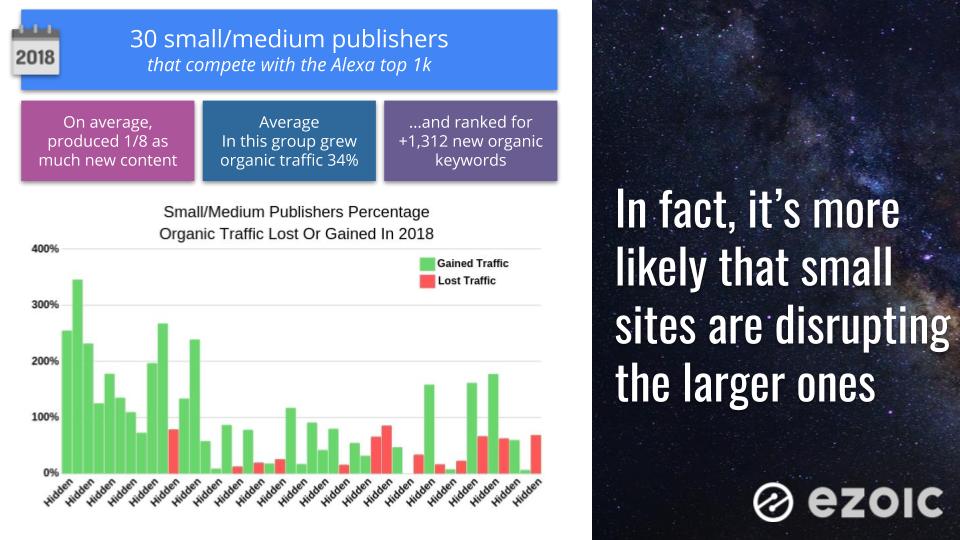
Unfortunately, it is also a little more complex than it was a decade ago to launch a site, write content, and grow it into a profitable business. With industry regulations, like Ads.txt and GDPR, emerging trends in SEO, calls for reliable mobile infrastructure, a flattening ad ecosystem, and more competition than ever, publishers are being forced to become experts in a lot of different disciplines.
This shouldn’t discourage niche website ventures. Despite the complexity, growing data shows that smaller, niche sites are often disrupting larger media businesses in the most powerful places that audiences are generated, like Google Search.
Niche sites that can successfully…
- generate unique content
- appeal to an audience
- monetize their audience successfully
- manage website infrastructure and regulation
… are in a better position than major brand publishers to generate a sizable profit due to far lower overhead.
How do you choose a profitable niche?
Often, publishers will try to seek out a niche that contains the highest ad rates when researching a new website venture. This is not typically how successful niche sites get started. There are two reasons why:
- Competition in these niches is higher and usually occupied by incumbents with strong subject expertise
- Publishers starting these sites do not currently have any unique connection to these subjects/topics
Here’s an example of a failed venture.
I find that the medical field is a very valuable niche. I decide to independently start a site all about heart disease to capitalize on the high organic traffic volume of the phrases and long-tail keywords associated with this topic.
I setup hosting, pay for a good domain name, and start investing time and money into developing my site and creating content.
Unfortunately, I don’t know anything about heart disease; nor am I a doctor or expert. Anything I would learn about the topic I’d have to glean from a Google search or pay an expert writer handsomely to produce.
Furthermore, if I was simply hiring an expert or researching the topics myself, how would I be proving my potential audience anything unique or valuable? I probably wouldn’t. For that reason, I’d probably struggle to rank in search engines and lack appeal on social platforms for anything more than short-term clickbait.
Display advertising would likely be very poor for my low-traffic site — despite my valuable niche — and I’d likely lose money on my time and money invested in this project.
This would be a failed website venture.
What publishers want to do is find a niche where their expertise, or the expertise of their staff, can offer something unique an interesting to an audience.

This may result in a potential content niche with much lower ad rates, but the chances of generating traffic are much higher. This means that turning a profit quickly is a much more achievable goal; as the site can attract an audience and adjust monetization as it scales.
Here’s an example of a successful venture
My wife and I are experts in Brazilian Jiu Jitsu. We decide to start a jiu jitsu website dedicated to emerging jiu jitsu techniques and sports trends.
We set up the site, domain, etc. and invest time and money in creating new relevant content.
We realize that there is a lack of free tutorial videos and instructions in our niche along the way and begin producing short simple videos to accompany regular articles on the topic. On average, advertisers pay nearly 1/4 for ad impressions on the jiu jitsu site vs. the medical site. However, we generate revenue from display ads, our YouTube channel, and selling products associated with our content (because we are experts and our audience trusts our opinions).
This results in growing traffic that nets us a profit in our 3rd month. We can then use analytics to determine which content is most valuable and become more profitable as we go. We could even invest in creating more content to grow faster.
Any publisher can improve their ad rates though, no matter what niche they are in. I’ve written about this a little before.
What makes a niche website profitable?
Measuring niche website profitability is pretty simple. Publishers simply need to net more revenue in all forms of monetization than they invest in development, infrastructure, and maintenance.
If you’re an independent publisher (doing this all yourself), you can afford to invest your time and energy creating content without suffering a financial loss; however, remember that the time you spend here could be spent developing other sites or doing other things. Time isn’t free and is something you’ll want to track over time.
Why does tracking time matter?
The time you may personally invest in a digital property should be tracked so that if you need to begin scaling a site you can understand the length of time or level of effort required to do certain tasks (write articles, adjust infrastructure, SEO, etc.). This will help you determine what a good price might be for hiring writers or outsourcing development.
Additionally, if you ever decide to sell the site you’ll want to have a good accounting of this to share with potential sellers. They’ll be familiar with the ins and outs of running a publishing business and will expect some metrics around what types of resources will be necessary to sustain or grow the site’s income.
What are examples of niche website costs?
- Domain name / registrar
- Hosting / CDN
- Infrastructure (themes, technology, tools to manage the site easily)
- Content creation / writers
- Development and maintenance
- Marketing and research tools (newsletters, SEO tools, etc.)
- … and potentially more depending on your niche
What is a good website niche?
Truly, it is one that is well researched by the potential publisher(s). The most important thing for a new niche site to offer its audience is unique content. If you can offer an audience unique content, you can profit from that content. However, the scale of that content and that audience will likely limit the potential of the site as well. This is why initial keyword and topic research should be conducted prior to launching a new niche website.
What research is most important to conduct?
- What high volume keywords broadly exist in this niche?
- Who is the target audience?
- Could you give this audience better content for many of the targeted keywords or topics?
- Who are the biggest competitors in this niche? Are they other niche sites or are they major publishers?
- What is the potential upside of this venture (bought by a major publisher, grow into a small business)?
Understanding how deep a topic might be is critical to researching a new niche content site. There should be a large number of high volume keywords you can target. Even if you aren’t able to rank in search engines or garner a large amount of social media traffic from these major terms, you can easily target the long-tail variations of these keywords and rich snippets. However, if there are not many to target, the upside of the niche may be low.

Next, deciphering the audience and the types of content they want vs. what is currently available is really important in determining where your new niche site might be able to provide value…
- do current sites in this niche lack comprehensiveness?
- do current sites in the niche lack expert insights
- is there a lack of video in this niche (is that what the audience wants)
Lastly, examining the total landscape of the niche should give publishers a good idea of what the upside might be. If your niche is dominated by broad brands like Wikipedia or the alike, this actually might not be a bad thing. Often, major brands lack depth on many topics and niche publishers can thrive by ranking highly for thousands of long-tail variations of keywords.
If a publisher spots a lot of competition from other niche sites, it is worth revisiting where a new niche site could provide value to the potential audience. How will the new site’s content be better than the other sites?
If a publisher wants to increase the revenue they generate from content, they could explore some of these methods as well.
How do you manage content creation on a new niche website?
Once a publisher begins a new site, traffic growth is dependant on content creation. For new sites, it is important to start by assessing what type of content is needed in your niche. Do you need long, expertly-written articles on topics with images and rich media, or do you need short articles that offer a unique insight into a topic that has little competition in search results? One may require a deep investment of time and money in each article, the other may require a high-volume of short articles written each day.
Here are some great tips on writing content that will rank quickly in search results.
Quality content is relative to each niche. Using my examples from earlier, a jiu-jitsu website may find that daily videos embedded in a short 500-word blog does well on social media and ranks over time to low volume long-tail search queries. This means that high-volume, unique content production is the best way to grow traffic on this niche site and gain profitability.
A site that has a more comprehensive topic, like heart disease, it may require a heavy investment in content to create information that is better than what the likes of WebMD are producing. This means producing content at a slower pace and then spending time marketing it across the web to ensure that it ranks quickly in search engines and is found by those seeking this form of high-quality information.
Many publishers will start by creating the content themselves or by using existing staff from other publishing ventures. Other options include:
- Investing in writers
- Crowd-sourcing content from readers
- User-generated content (reviews/forums)
- Sourcing it from 3rd parties (obituaries and other public areas)
All the options have upsides and downsides.
Writing content with existing resources is time-consuming and can be difficult if you don’t possess the ability “in-house” to create the best possible content.
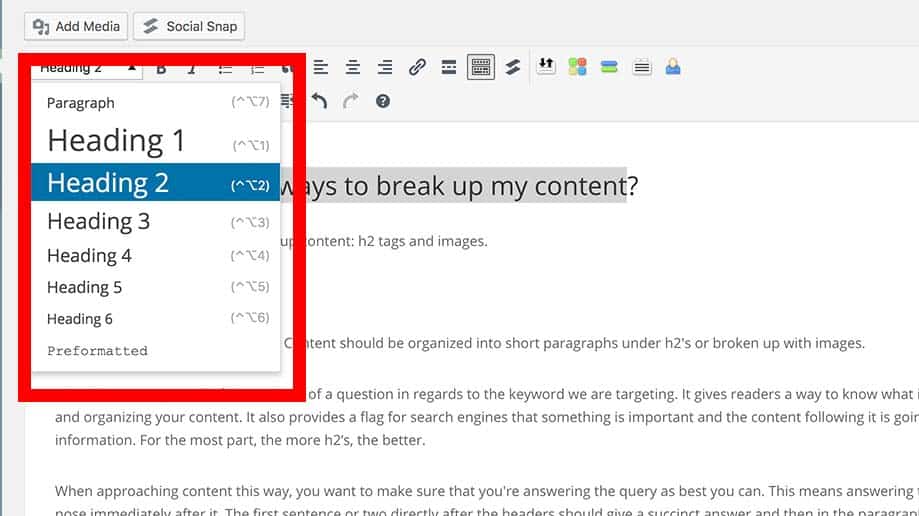
Writers can be a good investment, but costs can vary depending on the subjects. You could use a style guide like this to guide college students or cheap freelancers to produce quality content that makes SEO easy. However, if you require high-level expertise, you will likely find that expert writers are far more expensive than freelancers per word.
Lastly, user-generated content or content sourced from 3rd parties carries an inherent risk. It is hard to control and it must maintain unique qualities. Maintaining a standard on the uniqueness and quality of the information will be key to ensuring success. Scraping content from other places or having users generate low-quality content will grossly limit your monetization options.
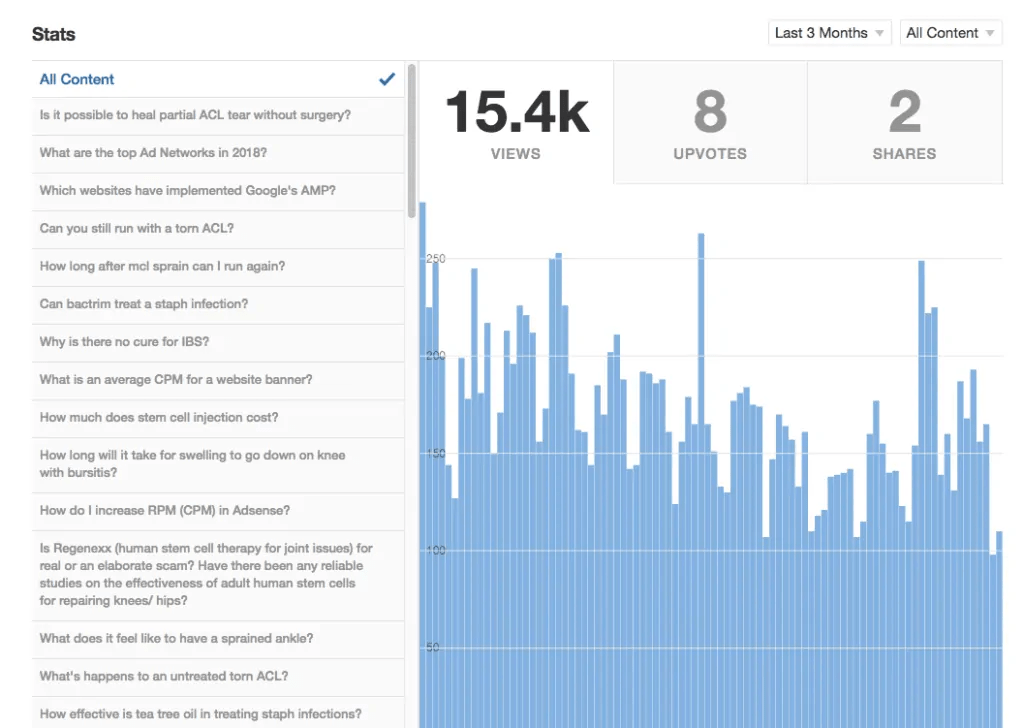
How long will a niche website take to grow into a REAL business?
It depends. If you have existing resources to share and market your content as it is produced, you may be able to begin generating a profit in as little as a month or two. If you don’t have existing sites, social media pages, or newsletters you can use to promote the new niche site, you will have to share content, grow organic traffic, and develop these resources from scratch. A good scenario for seeing profitability in an endeavor like this may be 6-12 months.
Organic traffic is notoriously a slower form of traffic to build; however, it can be grown and developed simply by producing high-quality content. Often, it is thought that high-level SEO, backlinks, or other major efforts are required to grow substantial organic traffic, but that is not the case.
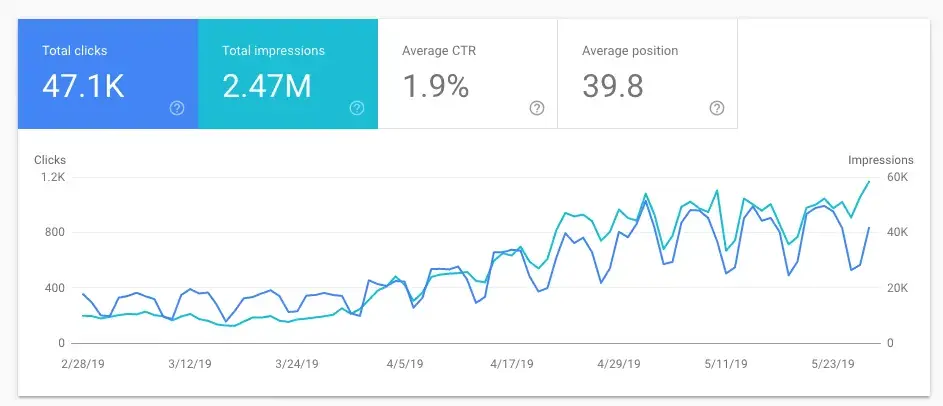
I created this small site 2 years ago. I have never “built” a backlink or done anything other than keyword research, content writing using this guide, and occasionally sharing articles on Quora. It now receives approximately 60,000 visits per month from only 17 articles that were written sporadically over that time period.
Every site is different. Hopefully, this information has helped you better understand how to launch and grow a niche site; whether you’re a publishing expert at a major media outlet or looking to start your first site.
Questions? Leave them below and I’ll chime in.


Excellent article, very interesting. I think that the main challenge is to launch and grow traffic initially. As you mentioned, if someone already has a fan page or email list with a lot of subscribers, he could make money quickly with a niche website. Otherwise, it will take money to create quality content continuously for several months, see year,
Excellent article, very interesting. I think that the main challenge is to launch and grow traffic initially. As you mentioned, if someone already has a fan page or email list with a lot of subscribers, he could make money quickly with a niche website. Otherwise, it will take money to create quality content continuously for several months, see year,
A paragraph about the research that is the most important actually includes main key things every specialist should remember!
A paragraph about the research that is the most important actually includes main key things every specialist should remember!
Very helpful for something like me , a newbie, but here I am trying to go one of your link regarding sharing contents, which is not working. Is there any known good service for social media sharing?
If so please. can you share me here?
Very helpful for something like me , a newbie, but here I am trying to go one of your link regarding sharing contents, which is not working. Is there any known good service for social media sharing?
If so please. can you share me here?
Great read, Tyler! Definitely got me thinking about how I’m spending my time currently and the possibilities of branching off into other niches once the main site is strong sailing.
Great read, Tyler! Definitely got me thinking about how I’m spending my time currently and the possibilities of branching off into other niches once the main site is strong sailing.
Are you trying to tell that hiring article writers to make high quality, unique content for niche is required initially to grow ?
Are you trying to tell that hiring article writers to make high quality, unique content for niche is required initially to grow ?
It is not required, but often this is one of the fastest ways to scale if a publisher is not able to create this kind of quality content at scale to start,
It is not required, but often this is one of the fastest ways to scale if a publisher is not able to create this kind of quality content at scale to start,
I’m managing a niche site focussed on erectile dysfunction. This is a very high-value niche. The problem I am having is competing with “major” sites such as webMD.com and MayoClinic.org.
Any advice?
I’m managing a niche site focussed on erectile dysfunction. This is a very high-value niche. The problem I am having is competing with “major” sites such as webMD.com and MayoClinic.org.
Any advice?
Bottom line be ready to work and spend money. The struggle is real people.
Bottom line be ready to work and spend money. The struggle is real people.
Great post, ranking niche site is easier as compared to those websites who publish content in many different categories
Great post, ranking niche site is easier as compared to those websites who publish content in many different categories
Yes, i agree with beth, the struggle is REAL if someone says (mostly people saying all the time) that this is Free or Easy, that is a plain lie.
Yes, i agree with beth, the struggle is REAL if someone says (mostly people saying all the time) that this is Free or Easy, that is a plain lie.
Hi Tyler, this is something I am really searching on the Internet. I am new to this online market place and want to set up a new niche business online. I understand competition is very tough these days and and analyzing their strategies is equally important. Is there any way I can keep a regular eye in their strategies? I just want their website screen shots.
Hi Tyler, this is something I am really searching on the Internet. I am new to this online market place and want to set up a new niche business online. I understand competition is very tough these days and and analyzing their strategies is equally important. Is there any way I can keep a regular eye in their strategies? I just want their website screen shots.
Solid article Tyler. Do you think it’s really possible to build up a base of traffic in 2019 without actively link building or similar and just purely focusing on content?
E.g: not even using a small amount of money to amplify content on social media, just grinding out “good” content that’s SEO-friendly and fulfills keyword volume demand?
Cheers
Solid article Tyler. Do you think it’s really possible to build up a base of traffic in 2019 without actively link building or similar and just purely focusing on content?
E.g: not even using a small amount of money to amplify content on social media, just grinding out “good” content that’s SEO-friendly and fulfills keyword volume demand?
Cheers
Mostly, yes. There may be some exceptions, but I think there are great strategies for naturally acquiring the links you need through writing great content and sharing your content socially and in online communities. Some may consider this “link-building”. I consider it sharing/marketing content.
Mostly, yes. There may be some exceptions, but I think there are great strategies for naturally acquiring the links you need through writing great content and sharing your content socially and in online communities. Some may consider this “link-building”. I consider it sharing/marketing content.
It is getting harder and harder to find a profitable niche. But at the end of the day, hard work can always get you ahead of the competition
It is getting harder and harder to find a profitable niche. But at the end of the day, hard work can always get you ahead of the competition